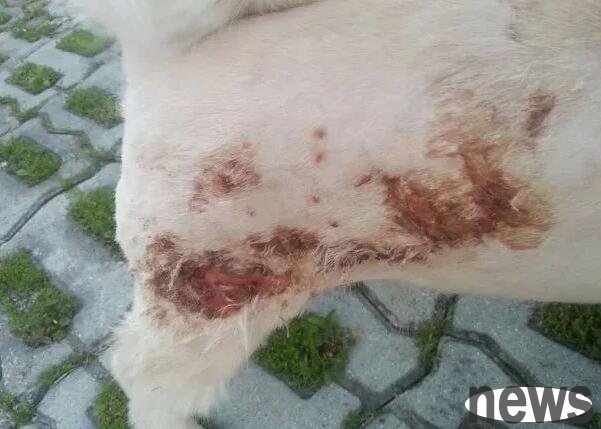The most common causes of burns in dogs are: thermal burns such as boiling water, hot steam, flame, hot porridge, etc.; chemical burns such as strong acids, strong alkalis, etc.

1. Causes of dog burns (scalds):
The most common causes of burns are: thermal burns such as boiling water, hot steam, flame, hot porridge, etc.; chemical burns such as strong acids, strong alkalis, etc.
2. First aid for dog burns (scalds)

1. The wound must be rinsed with clean water, and bandaged or applied to the wound surface to prevent infection. When strong acids, strong alkalis and asphalt burn the skin, use Qingyong to thoroughly rinse. To prevent acids and alkali from remaining in the wound, the rinse time is generally at least 5 minutes. 2. When limbs are burned, first rinse with cold cleaning water, and then cover it with a cleaning cloth or disinfectant gauze to send it to the hospital. When eye burns, rinse with normal saline, remove foreign matter with cotton stick and drop 0.25% chloramphenicol eye fluid. 3. When wrapping with hands and feet, fingers (toes) should be separated to prevent adhesion. 4. When water is short, you can take light salt water in a small amount several times, or burn drinks (each tablet contains 0.3 grams of salt, 0.15 grams of sodium bicarbonate, and 0.03 grams of rumina). Take 1 tablet each time and take 100 ml of boiled water orally. Generally, it is advisable to take a small amount or multiple times. If vomiting, abdominal distension occurs, you should stop taking it several times. Avoid giving the affected dogs simple drinking boiled water or sugar water to avoid complications such as cerebral edema.
5. When treating small areas of mild burning (scalding) injuries at home, the wound should be rinsed with light salt water or cold boiled water, and then immediately apply badger oil or any of soy sauce, honey, vegetable oil, cucumber juice, egg white, vaseline, etc. to protect the wound and prevent blistering and infection. If it has bubbled, it must not be penetrated, as bubbles can easily cause infection. For burning (scalding) wounds, you can apply any ointment such as cermycin, tetracycline, chloramphenicol, gentamicin or sulfonamide. The wound can be exposed and kept dry to prevent infection.
6. If there are large-scale burns (over 40%), they should be sent to the hospital for treatment in time, and be careful to avoid bumps and keep warm during the journey.
